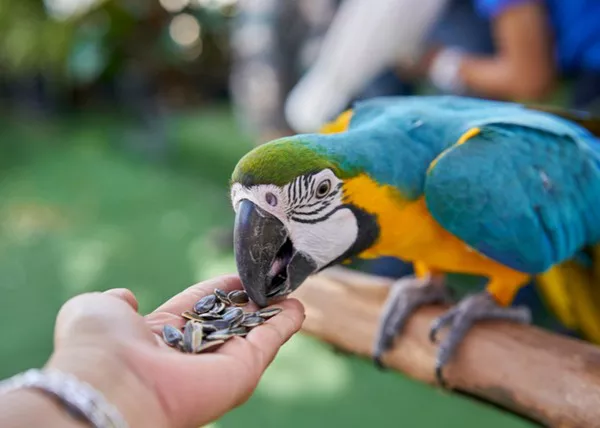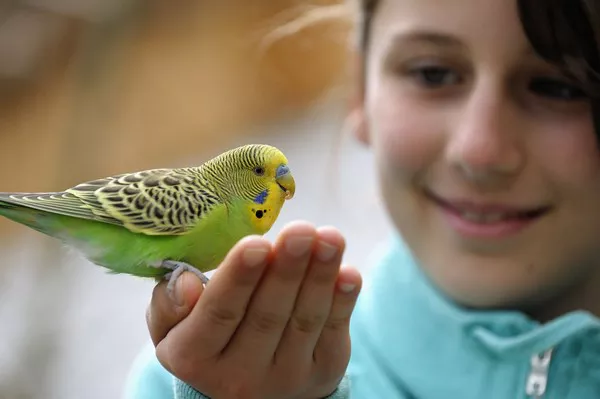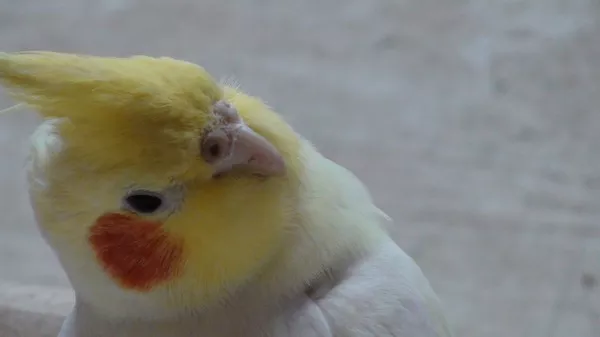When it comes to pets, we often think of cats curling up on our laps or dogs barking at the mailman. But what about birds? Specifically, sun conures? If you’ve ever considered bringing one of these colorful little guys into your home, you might have wondered: Are sun conures loud? Well, grab a cup of coffee (or birdseed) and let’s take a deep dive into the world of sun conures and their vocalizations.
Meet the Sun Conure
Sun conures (Aratinga solstitialis) are small, colorful parrots native to South America. Their vibrant feathers range from bright yellow and orange to green and blue, making them a sight to behold. These birds are social creatures and are known for their playful personalities. However, this social nature comes with a caveat: they have quite the vocal presence!
Vocalization: Nature’s Volume Control
Birds communicate through various sounds. These can range from sweet chirps to raucous squawks. Sun conures are particularly known for their loud vocalizations. But what causes this noise? Let’s break it down.
Communication Style
In the wild, sun conures live in flocks. These flocks communicate with each other to stay connected, find food, and warn of predators. Their vocalizations are crucial for their survival. They use different sounds for different situations. For example:
Chirps and Whistles: Friendly calls to other flock members.
Squawks: Alarm calls when they sense danger.
Screams: Used to assert dominance or during mating displays.
So, if you have a sun conure, remember that they’re just following their natural instincts to communicate!
How Loud Are They?
Sun conures can reach noise levels of up to 120 decibels. To put that in perspective, that’s comparable to a chainsaw or a rock concert! They are known for their ability to make themselves heard, especially when excited. Imagine your neighbor’s kid practicing the trumpet, but instead, it’s your adorable sun conure yelling, “Look at me!”
When Do They Get Loud?
Understanding when sun conures tend to vocalize can help you prepare for their volume. They are often loud during:
Morning Hours: Just like humans, they have their “wake-up” time. Expect a cacophony of sounds as they greet the day!
Feeding Times: Birds often get vocal when they see food, and sun conures are no exception. They’ll shout in excitement as they anticipate their meal.
Playtime: These birds are full of energy and love to play. Their excitement often translates to noise.
Attention Seeking: If they feel neglected, they may scream for your attention.
The Impact of Loudness on You and Your Home
While some people find the sounds of a sun conure endearing, others may not be as amused. Here are a few factors to consider about their vocal nature:
Your Living Situation
If you live in an apartment or have close neighbors, you might want to think twice about bringing a sun conure home. Their loud calls can be disruptive. Imagine living next to a band practicing every day; that’s what having a sun conure can feel like!
Your Tolerance for Noise
Everyone has different levels of tolerance for noise. If you enjoy music or have children who make a ruckus, a sun conure might fit right in. However, if you prefer a calm and quiet environment, you might want to consider a quieter bird species.
Your Schedule
Sun conures thrive on routine. If you’re often home during the day, their noise might not be an issue. However, if you’re out of the house for long periods, their vocalizations could lead to boredom and anxiety, which could make them even louder!
Tips for Managing Their Volume
If you decide that a sun conure is the right pet for you, here are some tips to help manage their loudness:
Create a Comfortable Environment
Ensure that your bird’s cage is large enough for them to move around. A well-furnished cage with toys will keep them entertained. Bored birds tend to scream more!
Regular Interaction
Spend time with your sun conure. The more attention they get, the less likely they are to squawk for it. These birds are social and thrive on interaction. You can play games, teach them tricks, or just chat with them.
See Also: Is a Sun Conure a Lovebird?
Provide Entertainment
Toys are essential for a sun conure’s happiness. Rotate their toys regularly to keep things fresh and exciting. You can also introduce puzzles or foraging toys to engage their minds.
Establish a Routine
Birds love routines. Set specific times for feeding, playtime, and quiet time. Your sun conure will feel secure knowing what to expect, which can reduce anxiety and the need to scream for attention.
Train Them to Be Quieter
Just like dogs can be trained to be quiet on command, birds can also learn to reduce their volume. Use positive reinforcement techniques to reward quiet behavior. When they are calm, give them a treat or praise them.
Understanding Their Needs
Understanding a sun conure’s vocal nature is just one part of caring for these delightful birds. They have several needs that must be met to keep them happy and healthy.
Social Interaction
Sun conures are social animals. They thrive on companionship, whether from humans or other birds. If you’re away from home often, consider getting a second bird to keep your sun conure company.
Mental Stimulation
These birds are intelligent and need mental challenges. Providing them with toys, puzzles, and new activities can help prevent boredom and reduce excessive screaming.
Physical Exercise
Sun conures are active birds. They need time out of their cage to stretch their wings and burn off energy. Regular playtime outside the cage will contribute to their well-being.
Health Care
Like all pets, sun conures need regular veterinary check-ups. Keep an eye on their diet and ensure they have access to fresh fruits, vegetables, and high-quality bird pellets.
The Sound of Love
While sun conures can be loud, many owners find their vocalizations to be a charming part of their personality. Their voices can range from sweet whistles to enthusiastic calls, creating a lively atmosphere in the home.
Bonding Through Vocalization
Interestingly, many sun conures will learn to mimic sounds and words over time. If you sing or talk to them regularly, you may find that they start to imitate you. This can lead to some hilarious moments as they mimic your laugh or favorite phrases.
Understanding Their Emotional State
A sun conure’s volume can also indicate their emotional state. For example, a sudden increase in loudness might suggest they’re feeling excited or threatened. Learning to read their body language alongside their vocalizations can deepen your bond.
Sharing Your Space
If you’re someone who enjoys a lively household, the sound of a sun conure can add to the vibrant atmosphere. They often become part of the family, joining in on conversations and celebrations.
Conclusion
Yes, sun conures can be quite loud! Their vocalizations are a natural part of their behavior and communication style. While their volume might not suit everyone, many owners find joy in their spirited nature. If you’re considering welcoming a sun conure into your home, be prepared for a lively companion who has plenty to say!
Ultimately, owning a sun conure is about finding a balance. By understanding their vocal needs and providing the right environment, you can enjoy the delightful sounds of your feathered friend without feeling overwhelmed. So, if you’re ready for some noise—and a whole lot of love—then a sun conure might just be the perfect pet for you!
Related Topics:


























